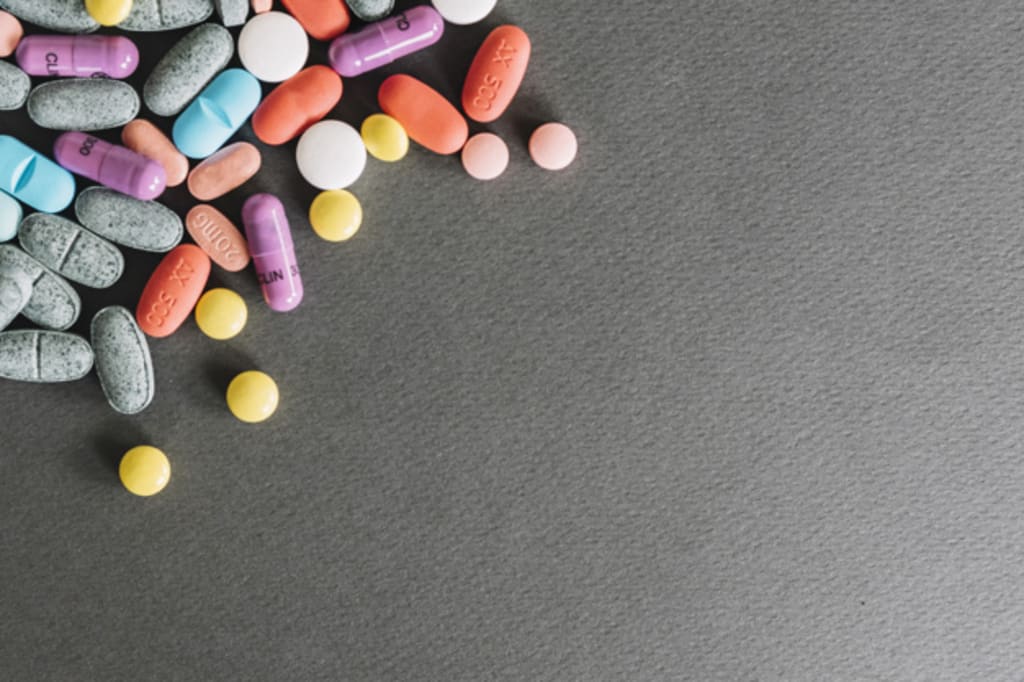Can Antibiotics Treat COVID-19 (coronavirus)? And Other Treatments
Here, we look at the part of antibiotics in COVID-19, the most recent research into other potential prescriptions, and the current treatment available for COVID-19.

Antibiotics don't treat viruses but are only powerful against bacterial contaminations. Individuals with COVID-19 may get antibiotics to treat secondary bacterial infections.
Researchers are currently completing research to check whether other drugs could be possible treatment alternatives for COVID-19.
Here, we look at the part of antibiotics in COVID-19, the most recent research into other potential prescriptions, and the current treatment available for COVID-19.
Can antibiotics treat COVID-19?
As indicated by the WHO, antibiotics are not viable in treating COVID-19(coronavirus), which the new coronavirus causes. Antibiotics can just treat bacterial infections, not viruses.
If individuals are receiving emergency hospital treatment for COVID-19, doctors may recommend antibiotics for secondary bacterial contaminations.
Are antibiotics being investigated as treatment options?
Azithromycin is an antibiotic that analysts are currently inventing as a potential treatment alternative for COVID-19. Azithromycin has anti-inflammatory impacts, which may help lessen an overactive immune response to COVID-19.
Research has also discovered azithromycin to have positive outcomes against Zika and Ebola viruses in test-tube experiments.
Azithromycin is also compelling in preventing severe bacterial respiratory tract infections in kids with viral infections.
Analysts are looking into the impacts of the blend of hydroxychloroquine, an anti-malarial medication, and azithromycin.
Research has discovered hydroxychloroquine to have anti-SARS-CoV action in test-tube experiments.
One little scope study looked at the impacts of hydroxychloroquine and azithromycin on individuals getting emergency hospital treatment for COVID-19 in France.
The outcomes indicated hydroxychloroquine fundamentally decreased the viral load or eliminated the coronavirus. The addition of azithromycin expanded the effectiveness of hydroxychloroquine.
However, another research from the American College of Cardiology found that treatment with hydroxychloroquine and azithromycin didn't improve results and expanded heart failure risk. The study looked at 1,438 individuals receiving hospital treatment for COVID-19 in New York. All participants had similar age, race, and time of starting treatment.
Since then, the FDA has revoked the emergency use authorization for hydroxychloroquine, so individuals and doctors should not utilize it to treat COVID-19 anymore.
Why do physicians prescribe antibiotics to those with COVID-19?
The new coronavirus prompts a respiratory infection that can debilitate the immune system. This effect can expand the risk of getting a bacterial infection, which the individual may find more enthusiastically to fight off.
Doctors may prescribe antibiotics to Individuals with COVID-19 to prevent or treat secondary bacterial contaminations, such as bacterial pneumonia. Doctors may then utilize antibiotics as a significant aspect of the treatment to battle the infection.
What are the treatment alternatives available?
The FDA has not confirmed any drugs for the particular treatment of COVID-19.
Current treatments rely upon the severity of each case and focus on treating symptoms and complications of COVID-19.
For mild indications, individuals might have the option to treat COVID-19 with home remedies. These can include:
- Getting a lot of rest
- Drinking a lot of liquids to stay well hydrated
- Fever and pain relief medicine, for example, acetaminophen
- Monitor symptoms, and reaching a doctor straight away if they worsen
Hospitalized with COVID-19 can include:
- Intravenous liquids to prevent dehydration
- Oxygen supply if individuals experience issues breathing
- Treating any complications, for example, pneumonia
- Antiviral medication remdesivir for emergency cases of COVID-19
Researchers are additionally into a range of existing drugs as a potential treatment. These medicines include:
- Anti-malarial drugs
- Drugs for autoimmune conditions
- Antiviral medications that are powerful for other viruses
- Convalescent plasma, utilizing antibodies from individuals who have recovered from COVID-19
- High dosages of intravenous vitamin C
Further tests and experiments will help determine if any of these alternatives could be potential treatment choices for COVID-19.
Symptoms and when to see a doctor
As indicated by the CDC, symptoms for COVID-19 can seem 2–14 days after introduction to the new coronavirus. Symptoms can include the accompanying:
- Cough
- Fever or chills
- Shortness of breath
- Trouble breathing
- Fatigue
- Body aches or muscle aches
- Migraine
- Loss of smell
- Loss of taste
- Sore throat
- Blocked or runny nose
- Nausea
- Vomiting
- Diarrhea
Individuals should deliberate their doctor if they have extreme symptoms or symptoms exacerbate. Individuals should look for immediate medical attention if they have any of the accompanying symptoms:
- Trouble breathing
- Continual chest pain or pressure
- New state of confusion
- Unfit to remain awake or to weaken
- Blue tinge to lips or face
Individuals can call the emergency number and inform the operator that the individual may have symptoms of COVID-19.
Summary
Antibiotics treat bacterial infections and are not efficient in treating viruses. One antibiotic, azithromycin, might be a potential treatment alternative. Researchers are right now studying the impacts.
Although there have been statements of some positive outcomes from azithromycin, especially alongside hydroxychloroquine, there have additionally been severe side effects. Researchers need additional proof to test the wellbeing and effectiveness of these two drugs.
There are currently no FDA recommended drugs for the particular treatment of COVID-19. Researchers are looking into the capability of existing drugs and antivirals, alongside other treatment therapies, to treat COVID-19.
Current treatment focuses on symptom help and treating complications. Individuals might have the option to treat mild symptoms at home.
If individuals have severe symptoms, they should contact their doctor straight away.
About the Creator
Dose Pharmacy
One of the most trusted and best online pharmacy in USA, which provide best genuine and generic medicine with free delivery on doorstep and 24 hours online customer support. one can simply buy medication online.
https://www.dosepharmacy.com






Comments
There are no comments for this story
Be the first to respond and start the conversation.